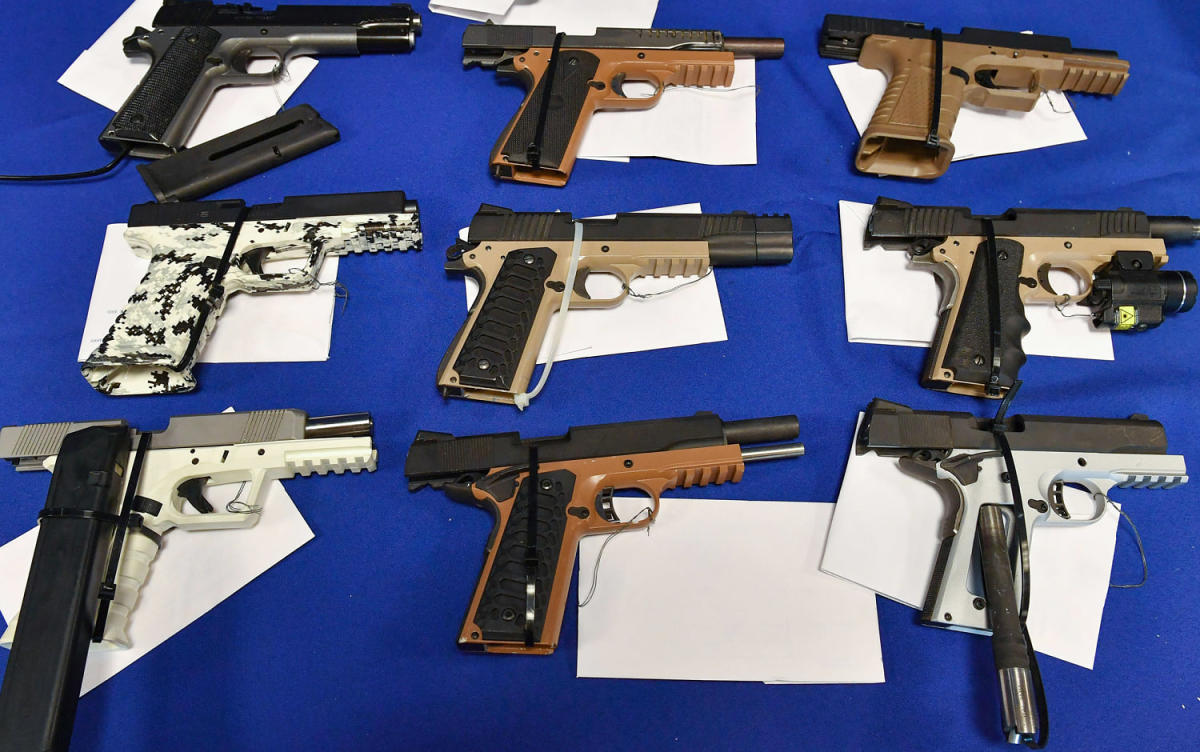WASHINGTON — The Supreme Court on Monday agreed to consider whether the Biden administration can lawfully regulate so-called ghost guns — firearms that are made from kits available online that people can assemble at home.
The justices took up a Biden administration appeal in defense of regulations that a lower court invalidated. The provisions in question are currently in effect while litigation continues.
In August of last year, the Supreme Court allowed the regulation to be enforced on a 5-4 vote, with Chief Justice John Roberts and fellow conservative Justice Amy Coney Barrett joining the three liberal justices in the majority.
The federal Bureau of Alcohol, Tobacco, Firearms and Explosives issued the regulations in 2022 to tackle what it claims has been an abrupt increase in the availability of ghost guns. The guns are difficult for law enforcement to trace, with the administration calling them a major threat to public safety.
The rule clarified that the parts used to make ghost guns fit within the definition of “firearm” under the federal Gun Control Act, meaning the government has the power to regulate them the same way it regulates firearms made and sold through the traditional process.
The regulations require manufacturers and sellers of the kits to obtain licenses, mark the products with serial numbers, conduct background checks and maintain records.
Texas-based U.S. District Judge Reed O’Connor last year ruled in favor of Jennifer VanDerStok and Michael Andren, who own components they want to use to build guns. Plaintiffs also include gun rights groups and makers and sellers of ghost guns.
After the Supreme Court allowed the regulation to remain in effect while litigation moved forward, the New Orleans-based 5th U.S. Circuit Court of Appeals mostly ruled for the challengers.
“Because Congress has neither authorized the expansion of firearm regulation nor permitted the criminalization of previously lawful conduct, the proposed rule constitutes unlawful agency action, in direct contravention of the legislature’s will,” the ruling said.
If that decision were allowed to go into effect, “anyone could buy a kit online and assemble a fully functional gun in minutes — no background check, records, or serial number required,” Solicitor General Elizabeth Prelogar wrote in court papers.
“The result would be a flood of untraceable ghost guns into our nation’s communities, endangering the public and thwarting law-enforcement efforts to solve violent crimes,” she added.
The challengers agreed with the Biden administration that the Supreme Court should take up the case, citing its nationwide importance.
Their lawyers wrote that it is not the job of the ATF to expand the meaning of “firearm” under the Gun Control Act.
“If that definition has become obsolete or unsatisfactory in any way, that is an issue for Congress to address,” they wrote.
The Supreme Court’s conservative majority has backed gun rights in multiple cases, including the landmark 2022 ruling that for the first time recognized that the Constitution’s Second Amendment includes a right to bear arms outside the home.
The court is currently weighing the scope of that decision in a case concerning whether people accused of domestic violence have a right to own firearms.
The ghost guns case, however, is on a separate legal question related to ATF’s regulatory authority, not the right to bear arms.
The justices are set to decide a similar case in the coming weeks, a challenge to another ATF regulation that banned “bump stocks,” an accessory that allows semiautomatic rifles to be fired rapidly.
This article was originally published on NBCNews.com
